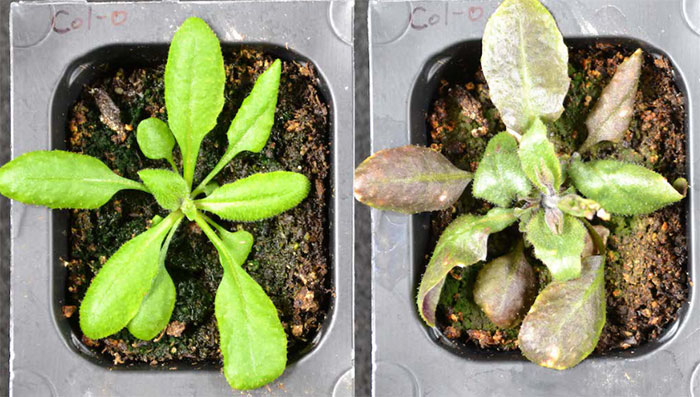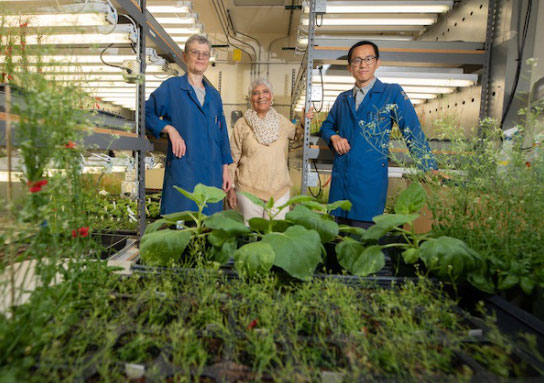When a headache strikes, many people reach for medication. Surprisingly, recent research has revealed that plants also exhibit a similar behavior by producing their own “pain-relieving” compounds.
A recent study conducted in California (USA) delved into the unique self-protection mechanisms in plants, specifically how they generate salicylic acid—the main ingredient in today’s aspirin pain relievers.

Color-changing plants in experiments to cope with high light stress – Photo: UCR
Plant biologist Wilhelmina Van De Ven from the University of California, Riverside (UCR), who led the research team, stated that her group discovered that salicylic acid is produced within the chloroplasts of plants. Chloroplasts are small green organelles where the essential process of photosynthesis occurs.
The team studied two types of Rockcress and Arabidopsis plants from the mustard family. Wilhelmina and her colleagues focused on a molecule named MecPP, which typically serves as an early warning signal for danger. MecPP is also found in certain bacteria and malaria parasites.
When subjected to stress factors, such as high temperatures, continuous sunlight, or water scarcity, MecPP accumulates in plants and contributes to various chemical reactions, including the production of salicylic acid.
Salicylic acid then plays a role in signaling different parts of the plant, helping them regulate their activities in response to external stressors. Other protective mechanisms are also activated due to the presence of salicylic acid and MecPP.
The research team also conducted biochemical analyses on plants with mutated salicylic acid signaling pathways. The results indicated that these plants had a higher risk of dying.
The team’s findings were recently published in the journal Science Advances.

Scientists from the research team – (Photo: UCR)
In the future, the team plans to conduct further in-depth surveys to better understand the mechanisms of plant responses to stress, especially as the environment currently faces numerous extreme weather phenomena due to climate change.
Plant geneticist Jin-Zheng Wang from the University of California, Riverside (UCR), a co-author of the study, believes that the results obtained will be highly valuable.
“Based on this, we can discover ways to improve the resilience of crops. This is crucial for food security in our increasingly warming world,” Mr. Wang stated.


















































